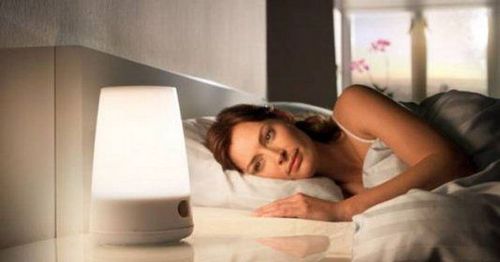This is an automatically translated article.
Deep and quality sleep plays an important role in helping the body rest, restore and re-energize. The minimum sleep time for each person can be from 7 to 9 hours per night. However, the depth of sleep depends on other factors. Continue reading to know what is deep sleep? Roles and functions in human health.
1. What is the concept of deep sleep?
While you are resting through sleep, your body goes through different stages of the sleep cycle, including:
REM sleep: Also known as rapid eye movement sleep; Non-REM sleep: Sleep without rapid eye movement. When you begin to fall asleep, you will experience non-REM sleep, and it will take a short time to enter REM sleep. This cycle will continue throughout the night and will happen every 90 minutes. Deep sleep occurs during the late stages of non-REM sleep.
In the early stages of non-REM sleep may last for a few minutes, at this time, the functions in the body including heart rate, breathing and eyes have just begun to move, so the frequency will be slow. Plus, at this point the body's muscles relax only with occasional seizures. Your brain waves are just starting to slow down from your waking state.
As you move into stage 2 of non-REM sleep (about 50% of your total sleep cycle) you may fall asleep more than at any other time during a night of sleep. During this phase 2 will see the body's systems continue to slow down and be relaxed. At the same time, the core temperature of the body also drops and eye movements will stop, brain waves will slow down.
When entering stage 3 and stage 4, you will now enter deep sleep. In these 2 stages you will have the slowest heart rate and breathing rate along with the relaxation of the muscles. Brain waves also gradually progress to the slowest state when you are sleeping and it is difficult to wake up even with loud noises.
So deep sleep is slow wave or parity sleep. The first stage of deep sleep can last from 45 to 90 minutes. This period lasts longer during the first half of a night's sleep.
REM sleep is also stage 5 of sleep and at this stage is the first stage of REM sleep. This phase occurs approximately 90 minutes after the transition to the non-REM phases. At this stage, the eyes often move rapidly from side to side. Or maybe you will experience a dream when brain activity increases to a more awake state, at which time your heart rate also increases and is closer to wakefulness. Breathing sometimes becomes rapid or uneven. Limbs at this stage may show signs of numbness.
2. Is deep sleep good?
Deep sleep brings many health benefits to humans such as:
Glucose metabolism in the brain may increase if we sleep deeply; Deep sleep supports memory and learning ability to work during the day; Deep sleep is also the time to help the pituitary gland secrete hormones important for health; In addition, deep sleep also helps restore energy after a tiring day of work, regenerate body cells, increase blood supply to muscles, promote growth and repair of tissues and organs. the bone; Promotes strengthening of the immune system. Not achieving deep sleep can affect how your body processes information every day, which can be linked to medical conditions like Alzheimer's, heart disease, diabetes or stroke.
For a normal body you should spend about 75% of each night in non-REM sleep and the remaining 25% in REM sleep. Of this proportion, deep sleep can account for 13 to 23%. Deep sleep also decreases with age. If you're under 30, you can get about 2 hours of deep sleep every night. But if you are over 60 years old, you only have a fairly short period of deep sleep, about 30 minutes or no deep sleep.
A few notes about deep sleep:
If you wake up feeling exhausted, you can use some sleep measurement devices. While the technology is relatively new, these devices can help identify sleep patterns. Not only does it reliably report your sleep level, but also how deep your sleep is. In order for you to fall into a deep sleep, temperature is known to promote slower-wave sleep. For example, when you take a hot bath or spend time in a sauna, it can improve the quality of your sleep; You should also eat a low-carb diet or use an antidepressant as directed by your doctor to promote the body to fall asleep more easily.
3. Some factors affect sleep
As age increases and the body changes, it can affect the amount and quality of sleep. At the same time, it can depend on each individual's situation or a number of other factors such as:
Menopause can cause a decrease in female hormones and will lead to night sweats and night sweats. with symptoms that cause difficulty falling asleep or staying asleep. In the elderly, it is due to a decrease in the secretion of the hormone Melatonin, which plays a role in sleep control. Therefore, the elderly may find it drowsy early in the evening and more difficult to fall back to sleep. At the same time, because the body of the elderly also secretes less growth hormone, it will be difficult for this subject to return to sleep. Health conditions affect sleep quality with cases of chronic medical conditions, such as arthritis causing pain or soreness. People with diabetes or frequent nocturia also experience disrupted sleep. Deep sleep will bring you a spirit of euphoria, relaxation, comfort, regeneration and recovery. However, if you have signs of waking up tired, sluggish or not sleeping well, you should see a doctor for advice and effective remedies.
Please dial HOTLINE for more information or register for an appointment HERE. Download MyVinmec app to make appointments faster and to manage your bookings easily.













